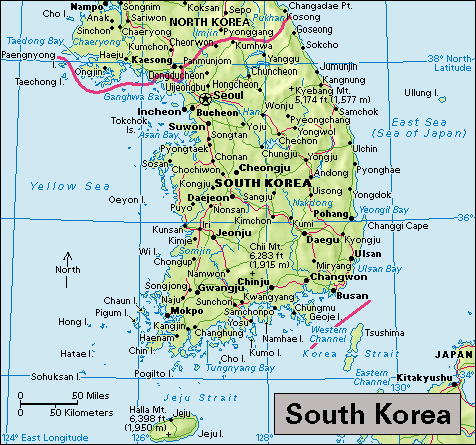Busan << boo sahn >>, also spelled Pusan, is one of the largest cities and the major port in South Korea. The municipality of Busan has a population of 3,449,016. A municipality may include rural areas as well as the urban center. Busan lies on the southeast coast of the Korean Peninsula.

Busan’s port handles millions of tons of cargo yearly. The city is an important center of South Korea’s fishing industry. Busan is also an administrative, commercial, and industrial center. The large number of industries located in and near the city produce chemicals, electric and electronic equipment, machinery, plywood, rubber goods, ships, and textiles. Busan has an underground rapid-transit system and an international airport.
Busan is also a tourist center. The region’s beaches and hot springs attract many visitors. Two religious landmarks in the Busan area also attract visitors. Tongdosa and Pomosa are both large, beautiful Buddhist temple-monastery complexes of buildings that lie on the slopes of wooded hills. The United Nations Memorial Cemetery is near Busan. It contains the graves of armed forces personnel from nations that fought as allies in the Korean War (1950-1953).
Busan dates from ancient times. During the Korean War, it served as the temporary capital of South Korea and was the chief landing and supply port of the United Nations forces. Busan’s population has increased sharply since the war. Today, the city suffers from a shortage of housing.
